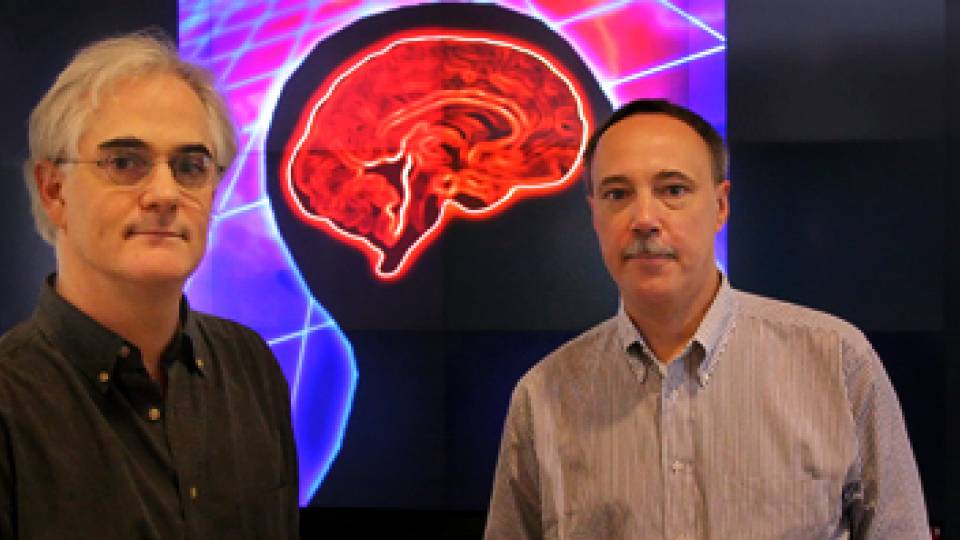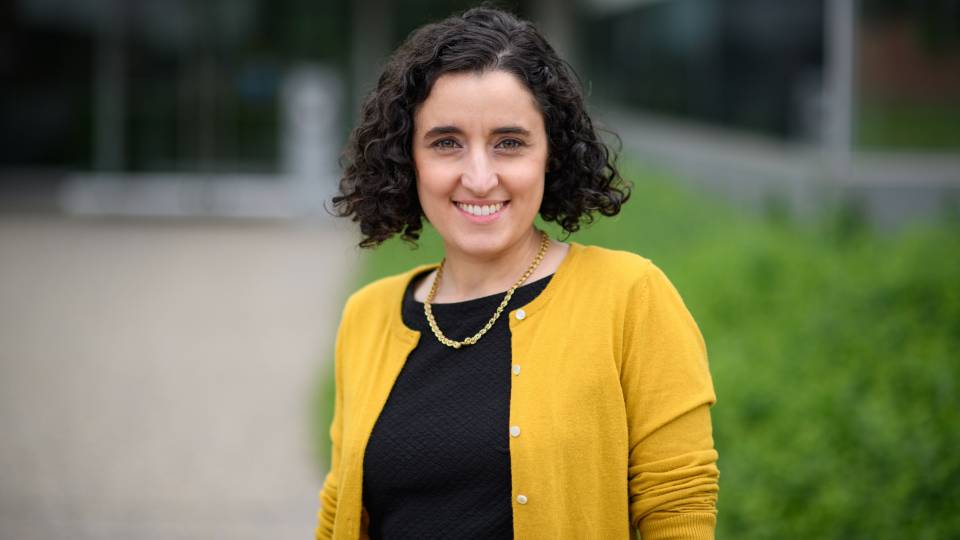James S. McDonnell III and John F. McDonnell have joined with the JSM Charitable Trust to make a $30 million gift to Princeton University to establish the McDonnell Center for Systems Neuroscience.
Teaching and research conducted by the center, which will be housed within the Princeton Neuroscience Institute, will investigate how the brain acquires, modifies and stores information during cognitive processes.
"The effort to understand the human brain is one of the most exciting areas of scientific inquiry in the 21st century," said Princeton President Shirley M. Tilghman. "We are deeply grateful to Jim and John McDonnell and the JSM Charitable Trust for this magnificent gift, which will greatly strengthen Princeton's position at the forefront of neuroscience research. In years to come, we expect many important discoveries to emerge from the center they have created."
James McDonnell III, a University trustee, is a member of Princeton's class of 1958; John McDonnell is a member of the class of 1960. Together, the brothers have been among Princeton's most generous donors. Their many gifts to the University include two given in honor of their late father, James S. McDonnell '21, a pioneer of the American aerospace industry: James S. McDonnell Hall, a building for teaching physics; and six James S. McDonnell Distinguished University Professorships.
The senior McDonnell had a keen interest in understanding the workings of the human mind, a trait shared by his sons, who believe that neuroscience is emerging as a singularly important field. "Princeton is a great institution, and neuroscience is one of the up and coming fields in science today," James McDonnell said.
The Princeton Neuroscience Institute, co-directed by Jonathan Cohen, the Eugene Higgins Professor of Psychology, and David Tank, the Henry L. Hillman Professor in Molecular Biology, draws on Princeton's strengths in quantitative analysis, theory and fundamental science. Launched in 2005, the institute is expected to expand basic knowledge about the brain, gaining insights that could lead to breakthroughs in treating diseases such as schizophrenia and epilepsy. It also is making significant contributions to developing, and using, new imaging and microscopy technologies as well as biochemical and genetic tools.
Systems neuroscience refers to the study of how networks of nerve cells are organized and operate to produce behavior. At Princeton, research focuses on neural coding, which refers to the way that information is represented in the electrical and biochemical signals in neurons (perception and short-term memory) and the patterns of synaptic connections (long-term memory), and on neural dynamics, which refers to patterns of nerve cell electrical and chemical activity in which information is created, manipulated and stored. Neural dynamics are involved in decision-making or in planning and executing sequences, such as in speaking or playing tennis.
The McDonnell gift will fund advanced technology in systems neuroscience and establish an endowment to support the highly trained specialists needed to run it. It also will set up an endowed fund for innovation in systems neuroscience, create a new faculty position and four graduate fellowships, and provide for a new systems neuroscience teaching laboratory.
"The establishment of the new McDonnell Center is great news for Princeton and for the whole area of systems neuroscience," said Tank. "This gift will ensure that we have the two essentials for making significant contributions to the field: the best researchers and the best technology."
Cohen, who works in the field of cognitive neuroscience, said the McDonnell Center will enhance the institute as a whole because the work of Princeton's systems neuroscientists is sure to cross-pollinate the work of others in the University's highly interdisciplinary approach to the field. "The McDonnell gift strengthens the entire institute as breakthroughs in one field inevitably fuel breakthroughs in others, and reflects the integrated, multilevel approach to neuroscience that is one of the defining features of the institute," he said. "This is a tremendous benefit not just to Princeton researchers, but to the advancement of knowledge in the field as a whole."
The McDonnell brothers spent their careers at the McDonnell Douglas Corp., which was founded by their father in 1939 and went on to build America's first carrier-based naval jets as well as the first spacecraft -- the Freedom 7 -- to carry an American into orbit. James McDonnell III served as a vice president of McDonnell Douglas; John McDonnell was its chairman and chief executive officer and today is a director of the Boeing Co., which merged with McDonnell Douglas in 1997. Both majored in aeronautical engineering at Princeton and both have master's degrees in the field as well -- James McDonnell from the Massachusetts Institute of Technology in 1959 and John McDonnell from Princeton in 1962. Their father received an honorary degree from Princeton in 1960.
The McDonnell brothers' grandfather, John M.T. Finney, a pioneer in medical research and a Princeton trustee who was once offered the presidency of the University, was a member of the class of 1884.
Both McDonnells have been annual giving volunteers for Princeton. James McDonnell also has served on the University's advisory council for engineering and applied science.

